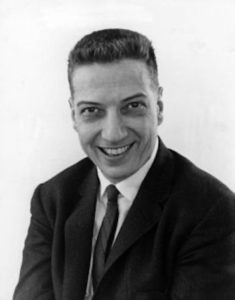
John H. Hammond II
*John Hammond II was born on this date in 1910. From the 1930s to the early 1980s, he was a white-American record producer, civil rights activist, and music critic.
John Henry Hammond II was born in New York and christened John Henry Hammond Jr., the youngest child and only son of John Henry Hammond and Emily Vanderbilt Sloane. Hammond showed interest in music from an early age. He began studying the piano at four, only to switch to the violin at age eight. He was steered toward classical music by his mother but was more interested in the music sung and played by the family’s servants, many of whom were Black. He would often go down to the basement of the family mansion to listen to the upbeat music in the servants' quarters.
Hammond also became interested in social reform at a young age. His mother also promoted social reform to give back some of her fortunes to the community. She often found solace in religion. Hammond shared her desire to help the community with his white privilege. The first jazz music he heard in public was in London in 1923 on a trip with his family.
He heard a band called The Georgians, a white Dixieland jazz group, and a Negro show called From Dixie to Broadway featured Sidney Bechet. This trip changed the way that he thought about music. Upon his return to the States, Hammond searched for records by Negro musicians but could not find them in the greater Manhattan area. He learned that Negro music was sold in different stores, so he began to search for this music in Harlem.
The intersectionality between jazz music and the more profound freedom of African Americans was a driving force behind Hammond's engagement in the art form. Hammond always strived for racial integration within the musical scene. For this purpose, he frequently visited musicians in Harlem to connect with musicians in their area. While initially, his race proved a problem in connecting with this community, he formed relationships with various musicians that allowed him to surpass this barrier. His friendship with Benny Carter gave him a status that allowed him to enter this musical community. In 1940, at a Manhattan party, Hammond met Jemison "Jimmy" McBride. They were married on March 8, 1941; he was the father of blues musician John P. Hammond.
From that union. In his service as a talent scout, Hammond became one of the most influential figures in 20th-century popular music. Hammond was instrumental in sparking or furthering numerous musical careers, including those of Bob Dylan, Bruce Springsteen, Benny Goodman, Harry James, Charlie Christian, Billie Holiday, Count Basie, Teddy Wilson, Big Joe Turner, Pete Seeger, Babatunde Olatunji, Aretha Franklin, George Benson, Freddie Green, Leonard Cohen, Arthur Russell, Jim Copp, Asha Puthli, Stevie Ray Vaughan and Michael Bloomfield. He is also primarily responsible for reviving the music of Delta blues artist Robert Johnson. John H. Hammond died on July 10, 1987.